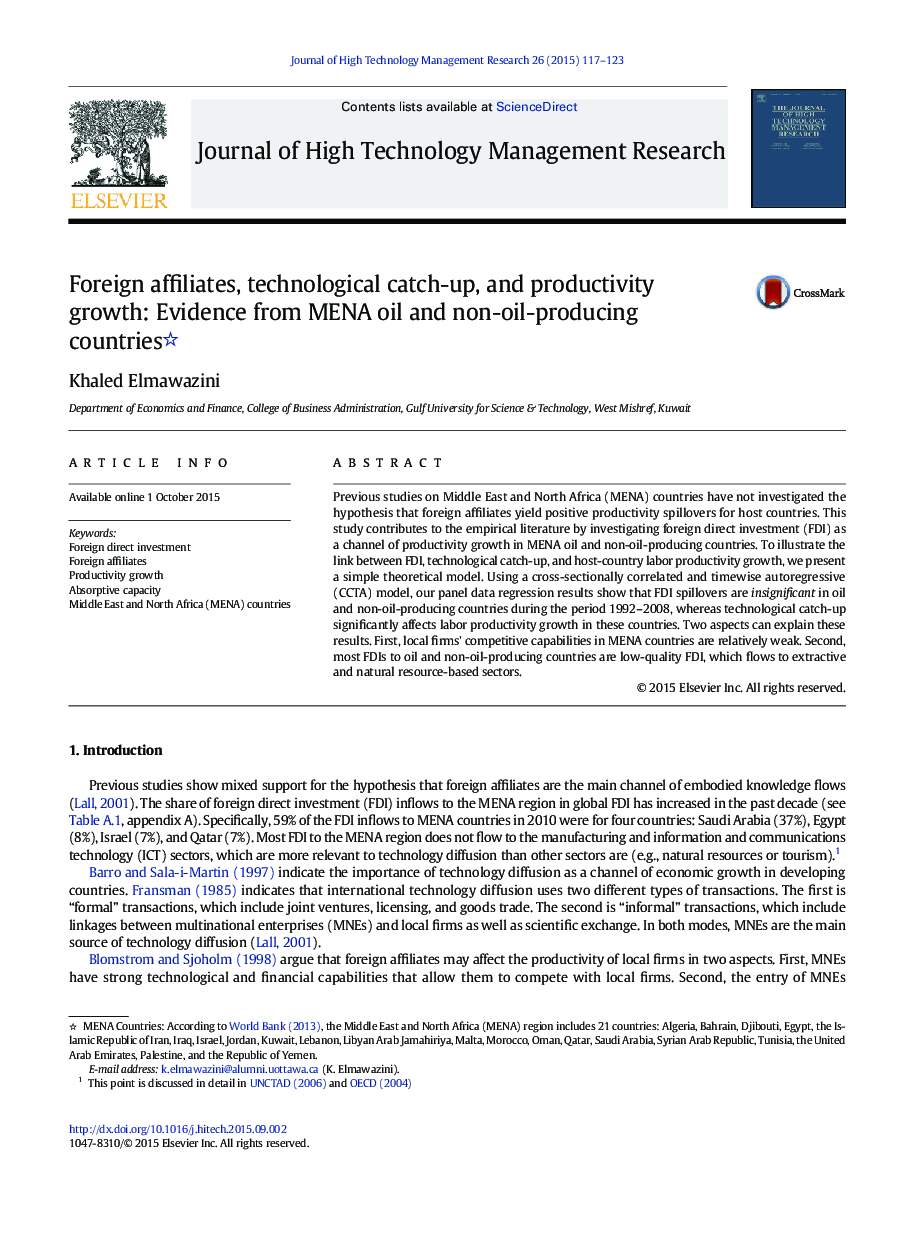| Article ID | Journal | Published Year | Pages | File Type |
|---|---|---|---|---|
| 1026508 | The Journal of High Technology Management Research | 2015 | 7 Pages |
Previous studies on Middle East and North Africa (MENA) countries have not investigated the hypothesis that foreign affiliates yield positive productivity spillovers for host countries. This study contributes to the empirical literature by investigating foreign direct investment (FDI) as a channel of productivity growth in MENA oil and non-oil-producing countries. To illustrate the link between FDI, technological catch-up, and host-country labor productivity growth, we present a simple theoretical model. Using a cross-sectionally correlated and timewise autoregressive (CCTA) model, our panel data regression results show that FDI spillovers are insignificant in oil and non-oil-producing countries during the period 1992–2008, whereas technological catch-up significantly affects labor productivity growth in these countries. Two aspects can explain these results. First, local firms' competitive capabilities in MENA countries are relatively weak. Second, most FDIs to oil and non-oil-producing countries are low-quality FDI, which flows to extractive and natural resource-based sectors.
